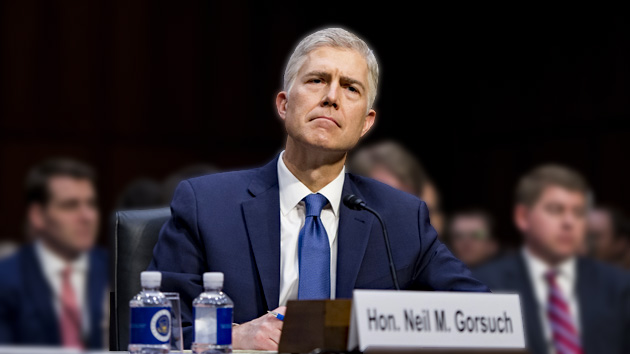
Bill Clark/Congressional Quarterly/Newscom via ZUMA
Neil Gorsuch is unlikely to give away anything concrete in his confirmation hearings for the Supreme Court, so Ramesh Ponnuru has a list of philosophical concerns for him to address. Here’s question #1:
The Supreme Court in its early decades rarely set aside federal laws. It first did so in 1803, and went another 54 years before doing it again. So at least one of the following three things would seem to be true. Either the federal government now enacts a lot more unconstitutional laws; or the justices gained a better understanding of their jobs as the Founding receded into history; or the Court has seized more and more power from the other branches. Which explanation makes the most sense?
I assume that the “correct” answer is the third one, though Ponnuru doesn’t give away his own opinion. But this is a very salient question. In 2012, conservatives urged the Supreme Court to set aside Obamacare even though:
- Everybody agreed that health care was a large and indispensable part of interstate commerce. Everybody also agreed that the Constitution grants supreme and extremely broad authority over interstate commerce to the federal government.
- Obamacare was unquestionably the kind of political issue that’s assigned to Congress and the executive by the Constitution.
- It was passed properly and signed into law after lengthy deliberation and careful consideration.
- A string of precedent more than 60 years old suggested Obamacare’s provisions were well within Congress’s commerce and taxing powers.
- It required people to take certain actions and it levied a penalty for not not following the law, something Congress has done many times before without incident.
The counterargument was literally invented out of whole cloth for the sole purpose of being applied to Obamacare: namely that Congress can penalize actions, but not inactions. Antonin Scalia made this famous as the “broccoli test.” In two centuries, no one had argued this before. The Supreme Court had never breathed so much as a word about this distinction.
But conservatives were eager for the Supreme Court to take this hairsplitting argument and apply it not to a small and modest law as a future warning for lawmakers, but to perhaps the most consequential law enacted in the past half century. No member of Congress could possibly have imagined that this distinction between action and inaction would matter, since liberals and conservatives alike had proposed health care mandates before and no one had suggested it might be a problem.
So I agree with Ponnuru. I would very much like to hear what Gorsuch thinks about how freely the Supreme Court should set aside federal law. Should bigger laws require bigger reasons? Should it matter whether the Supreme Court has provided any guidance before? Should it matter how new and creative the argument is for overturning a law? Should Congress be given more deference in some areas than others? Which ones? Should it matter how big the consequence is of violating a law? These all sound like very interesting questions to me.

















